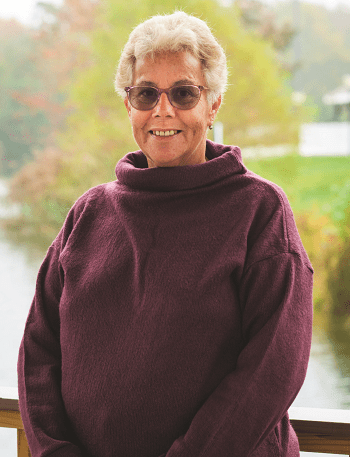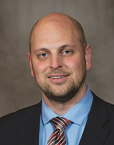“Dr. Jaronczyk checked on me the entire time. I would give him the Surgeon of the Year Award.”

Virginia Cullen, 62, a receptionist at a doctor’s office, wanted to lose weight, so she had gastric bypass surgery in 2006. During this procedure, the stomach is divided into two sections. The top part becomes a small pouch the size of a golf ball, which limits the amount of food that can be eaten. The stomach is connected to the middle of the small intestine, and the bypassed parts of the stomach and intestinal tract don’t absorb food. The procedure leads to hormonal changes that promote weight loss.
The procedure worked initially, but three years later, Virginia had put on weight and decided to have another procedure known as an adjustable gastric band, or a lap band. This involves placing an inflatable band around the upper part of the stomach, which creates a small pouch above the band. The lap band reduces the amount of food the stomach can hold and causes a person to feel full quickly. The device can be adjusted by adding or removing saline in a balloon around the band. Patients return to their doctor regularly to have the device “filled” and tightened. In 2018, Virginia saw her doctor to have the band adjusted, and an ultrasound exam showed that it wasn’t in position.

In May 2019, she saw Michael Jaronczyk, MD, a surgeon at Monmouth Medical Center Southern Campus (MMCSC), who ordered an X-ray. It confirmed that the band had slipped, which means it was creating a blockage in her stomach. He recommended removing the lap band and planned to perform an endoscopy immediately before the removal. This is done by inserting a long, narrow camera through the mouth to examine the inside of the stomach. Dr. Jaronczyk performed the endoscopy and noticed that the band had eroded.
“I was alarmed because the lap band is supposed to be outside the stomach, but it was inside,” says Dr. Jaronczyk. “Typically, patients have a gastric bypass or a lap band procedure, but not both.”
In addition, when the band slipped, it caused a fistula—an abnormal “passage” between the “old” stomach and the “new” stomach. This can lead to infection, says Dr. Jaronczyk.
“Fortunately, Virginia didn’t have an infection,” he says. “That was her saving grace.”
Virginia didn’t know that any of this could happen. “I was in shock,” she recalls. “I had no idea the band could deteriorate.”
Dr. Jaronczyk told Virginia that she needed surgery to remove the band. “He told me that it would be a serious surgery, and the recovery would be difficult,” she recalls. “I trusted him.”
A Harrowing Procedure
In September, Virginia underwent bariatric revision surgery, which lasted nearly five hours. Dr. Jaronczyk found an infection from the gastric band erosion.
“I located the band and removed it,” he says. “I also had to remove the spleen and two portions of the stomach before connecting the small intestine to the esophagus.” Unfortunately, Virginia’s infection progressed, and several days after the surgery, Dr. Jaronczyk had to open the surgical wound to drain the infection. He used a wound VAC (vacuum-assisted closure), which decreases pressure on a wound to accelerate the healing process.
By January 2020, Virginia had fully recovered from her procedure. Unfortunately, due to the infection, she had developed a hernia and needed additional surgery. In February, she had the hernia repaired and required a full abdominal wall reconstruction. “She did very well,” says Dr. Jaronczyk. “I was pleasantly surprised at the speed of her recovery.”
Fully Recovered
Today, Virginia is back at work. In September, she had kidney stones and returned to MMCSC for treatment. “Dr. Jaronczyk checked on me the entire time,” she recalls. “I would give him the Surgeon of the Year Award.”
To learn more about the breadth of surgical services as well as our exceptional surgical team, visit Monmouth Medical Center Southern Campus.